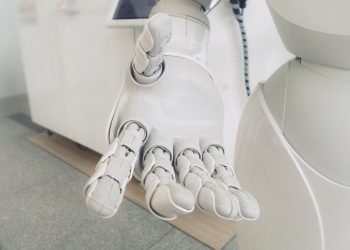No products in the cart.
The Future of Accounting: AI-Driven Career Evolution
AI is revolutionizing accounting, pushing professionals from data entry into advisory roles. Learn how to adapt and thrive in this evolving landscape.
New York, USA — The accounting profession is undergoing a seismic shift. With the rise of artificial intelligence (AI), traditional roles are evolving. Accountants are no longer just number crunchers; they are becoming strategic advisors.
This transformation is not merely about automation. It’s about redefining the skill sets required in an increasingly digital world. According to a report by the World Economic Forum, by 2025, over 85 million jobs may be displaced due to the integration of AI and automation across various sectors, including accounting[1].

Historically, the role of an accountant has focused on data entry, reconciliation, and compliance. However, as AI takes over these routine tasks, professionals must pivot towards more complex functions that require human insight, critical thinking, and strategic foresight. Deloitte’s 2023 Global Human Capital Trends report highlights that 65% of executives believe that the roles of finance and accounting professionals will evolve to include more analytical and advisory responsibilities[2].
Context: The Rise of AI in Accounting
AI technologies, such as machine learning and robotic process automation, are streamlining processes. Tasks such as invoice processing, data entry, and financial forecasting can now be performed more efficiently and accurately by AI systems. For instance, companies like Xero and QuickBooks are integrating AI to automate mundane tasks, allowing accountants to focus on higher-value activities[3].
However, as AI takes over these routine tasks, professionals must pivot towards more complex functions that require human insight, critical thinking, and strategic foresight.
Moreover, AI’s capability to analyze vast amounts of data in real-time provides accountants with insights that were previously unattainable. This new landscape empowers accountants to offer strategic advice, helping businesses make informed financial decisions. A study by PwC found that 54% of executives believe AI will improve their organization’s ability to make timely and informed decisions[4].
Analysis: Shifting Skill Sets
As AI takes over routine tasks, the demand for soft skills is increasing. Accountants must develop their interpersonal skills, critical thinking, and problem-solving abilities. The ability to communicate complex financial information to non-financial stakeholders has become crucial. A survey by the AICPA revealed that 85% of accounting professionals agree that interpersonal skills and emotional intelligence will be vital for future success in the field[5].
This shift also emphasizes the importance of continuous learning. Accountants must stay updated with technological advancements and regulatory changes. Many educational institutions are now incorporating data analytics and AI-related courses into their accounting programs to prepare future professionals for this new reality.
While the transition may seem daunting, it also presents opportunities. Accountants who embrace technology can enhance their marketability. Upskilling in areas like data analytics, cybersecurity, and AI will be essential for career advancement.
Looking Ahead: The Future of Accounting
In this evolving landscape, the future of accounting will likely see a greater emphasis on strategic roles. As companies continue to leverage AI for efficiency, the demand for accountants who can interpret data and offer insights will rise. The profession will not only survive but thrive as it adapts to the digital age.
Many educational institutions are now incorporating data analytics and AI-related courses into their accounting programs to prepare future professionals for this new reality.
Organizations should invest in training programs that foster both technical and soft skills. By bridging the gap between technology and human insight, accountants can position themselves as indispensable assets to their organizations.
The accounting profession stands at a crossroads. Embracing AI is not just about survival; it is about seizing the opportunity to redefine what it means to be an accountant in the 21st century. The accountants of tomorrow will be those who leverage technology to drive business strategy and innovation, ensuring their relevance in a rapidly changing world.











